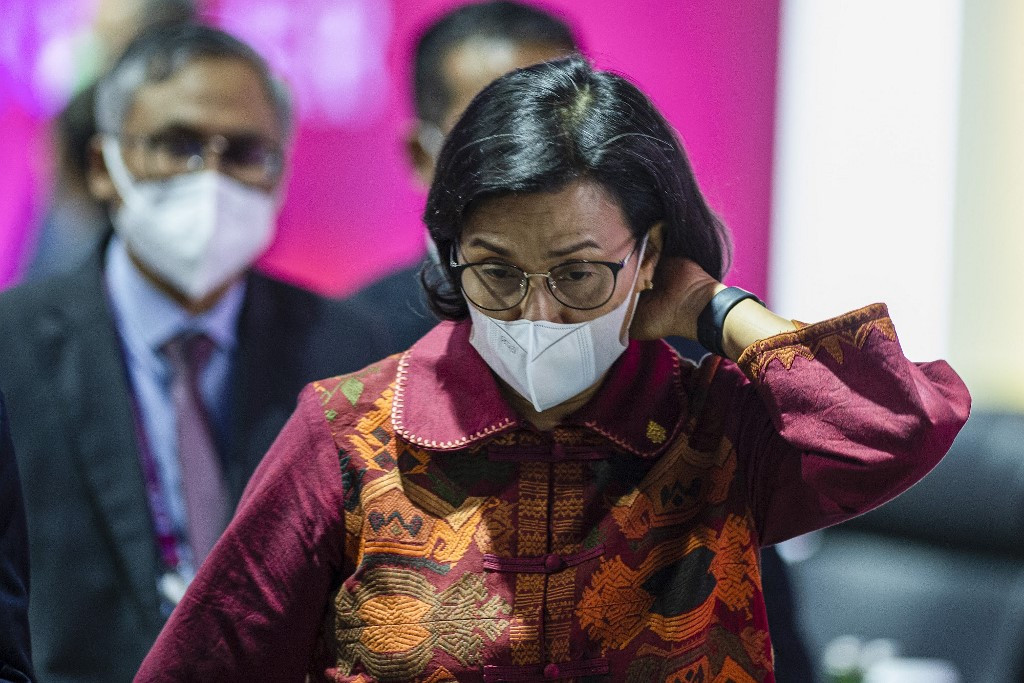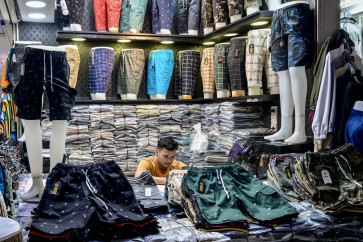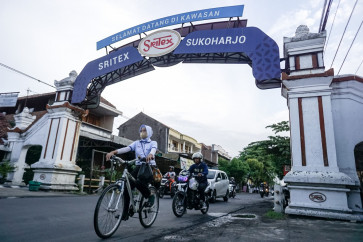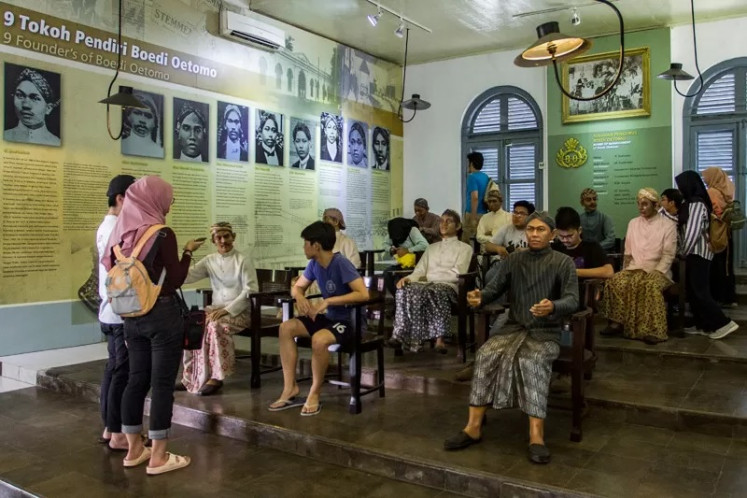RI calls for G20 unity as US, UK snub Russia
Sri Mulyani expresses concern about effect of sanctions on global economic recovery.
Change text size
Gift Premium Articles
to Anyone


Finance Minister Sri Mulyani Indrawati is putting on a brave face in her Group of 20 (G20) leadership role amid geopolitical tensions, stressing that more multilateralism and cooperation are needed to safeguard the global economic recovery.
Briefing journalists after the G20 Finance Ministers and Central Bank Governors (FMCBG) Meeting, which saw representatives of the United States, the United Kingdom and Canada walk out in protest over Russia's invasion of Ukraine, Sri Mulyani noted that sanctions imposed in response to the Ukraine war were exacerbating risks to the world economy.
“Some members expressed concerns about the economic consequences of the sanctions. Members share the view that the war and the associated action have and will continue to hinder the global economic recovery process,” Sri Mulyani said on Thursday.
Read also: Walkout by US, others did not derail G20 meeting's focus, Sri Mulyani says
The geopolitical tension has meant many G20 members face a perfect storm as the economic recovery remains fragile while they face increasing prices for energy, food, fertilizer and raw materials, including mineral commodities.
Low-income and vulnerable countries will be particularly affected given their limited fiscal space and high debt vulnerability, said the minister, who in the past served as managing director of the World Bank.
G20 members had expressed deep concerns about humanitarian crises and the economic and financial impacts of the war and called for an end to the war as soon as possible, she said, adding: “Many members condemned the war as unprovoked and unjustifiable and a violation of international law.”
Cooperation despite condemnation
Sri Mulyani said the stance of several Group of Seven (G7) members regarding Russia’s attendance had not surprised her but had not disrupted the forum’s discussion. The G7 is a subset of industrialized nations within the G20.
Read also: US Treasury’s Yellen to skip some G20 sessions, encourages pressure on Russia
She noted “strong condemnation” of Russia but added: “I'm confident this will not erode the cooperation or the role of the G20 forum.”
However, the finance minister also said that members had “supported the adaptation of the existing agenda to enable the G20 to address the economic impact of the war, while also maintaining a commitment to addressing preexisting global challenges.”
She added that G20 members had stressed the importance of the G20 as the premier forum to deepen cooperation, coordination and collaboration.
Indonesia currently presides over the forum grouping the world’s largest economies, whose membership includes nations that have been reluctant to condemn Russia’s actions. The Indonesian government has been wary of having crucial G20 agenda items derailed due to geopolitical tensions, which also affect smaller economies.
Beyond the war
During the meeting, G20 members backed the idea of a Financial Intermediary Fund (FIF) to address significant pandemic preparedness and response (PPR) financing gaps so as to be better prepared for future pandemics.
The presidency concluded that the World Bank should begin exploring the process of developing and setting up the FIF and suggested that the WHO be granted a crucial leadership role in the effort.
“There [is] quite a lot of support for us to be able to establish this financing facility, although the details regarding the governance, as well as the mechanism of the decision-making process, still need to be discussed,” Sri Mulyani said.
Sri Mulyani said G20 members had also stressed climate change as a risk to be addressed, while emphasizing that financing played a critical role in that endeavor. She said many countries were committed to climate transition mechanisms but constrained by financing issues.
She emphasized that climate change financing should not be limited to big projects but needed to be accessible also for small and medium enterprises.
The G20 members had yet to continue discussions on international taxation, the minister admitted.
Central bank coordination
Speaking at the same briefing, Bank Indonesia (BI) Governor Perry Warjiyo emphasized the need for global cooperation on monetary policy at a time when central banks are dealing with the double challenge of high inflation and risks to economic growth.
“Each country is not only focused on the impact of policies domestically in their country, but also on the recovery process in other countries,” Perry said.
A statement published on BI’s website after the briefing warned that “G20 members expressed concerns about the wider and persistent inflationary pressures [that would] push central banks to increase [interest rates and] result in faster-than-expected tightening of global liquidity.”
Indonesia’s central bank said G20 members noted the importance of a well-calibrated, well-planned and well-communicated exit strategy to support the recovery and reduce potential spillovers but also stated that “geopolitical conflicts have made global growth and recovery much more complex [and could] undermine efforts to address pre-existing global economic challenges.”
The G20’s FMCBG Meeting came just a day after the International Monetary Fund (IMF) significantly lowered its forecast for global economic growth in 2022 to 3.6 percent, down 0.8 percentage points from as recently as January.
Read also: IMF slashes global growth forecasts amid Ukraine war
In a press briefing transcript published on the IMF website on Wednesday, managing director Kristalina Georgieva said inflation had become a “clear and present danger,” with rising food and fuel prices straining budgets of ordinary families to breaking point.
“These are additional dark clouds weighing on the global economy, and there is one more hanging over our heads: the risk of geopolitical fragmentation, which could jeopardize the development gains of the last 75 years, and also leave us unable to deal with the current crisis and to address other urgent global challenges such as climate change,” Georgieva added.









